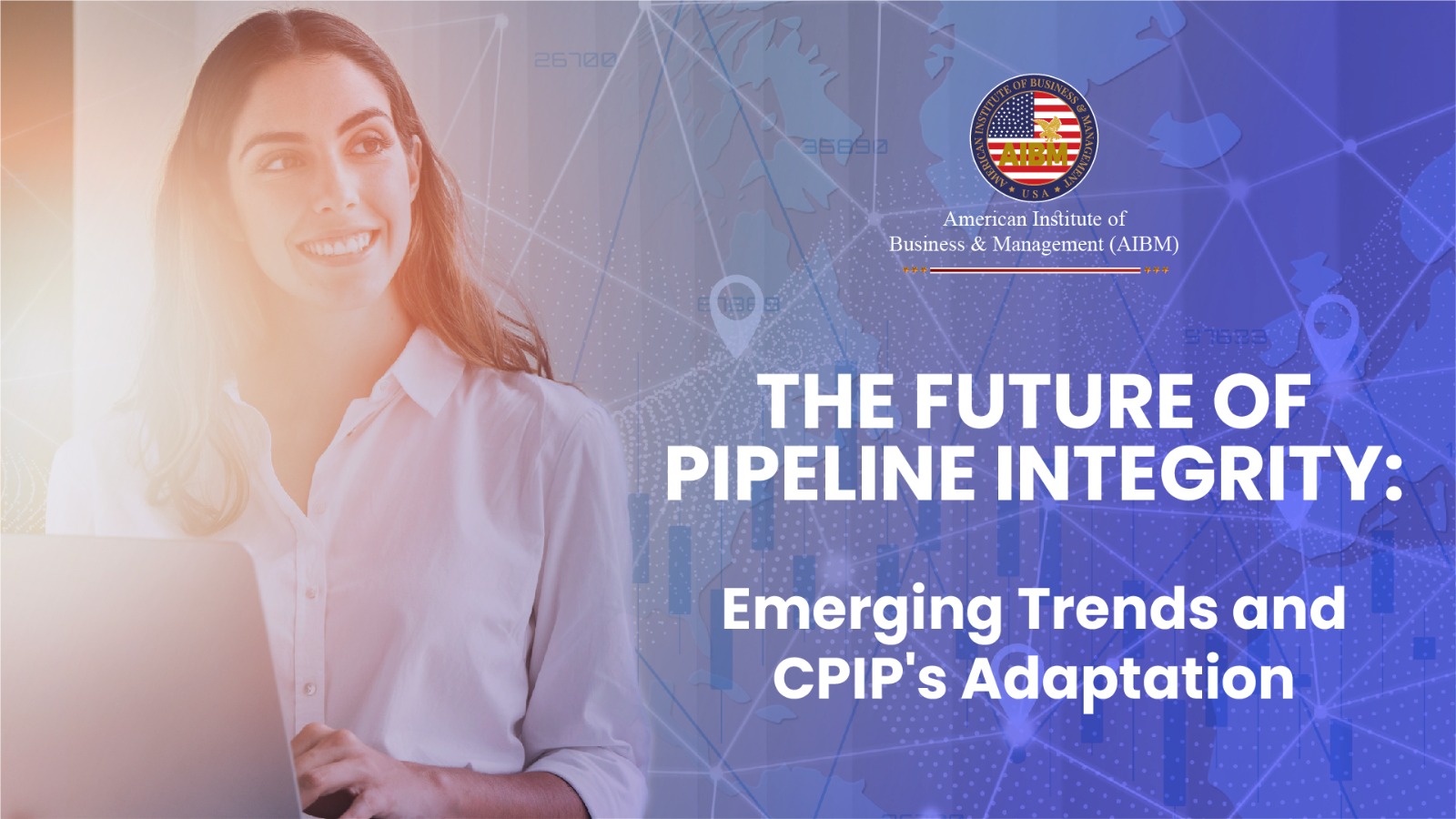The Future of Pipeline Integrity: Emerging Trends & CPIP’s Adaptation

Maintaining pipeline integrity becomes a more vital component of the industry as long as the globe depends on them to transfer energy supplies. Professionals who specialize in pipeline integrity are crucial to protecting these important assets. It is critical for Certified Pipeline Integrity Professionals (CPIPs) to keep ahead of new trends and adjust their abilities to meet future difficulties as technology and industry practices change. In this blog, we’ll look at some of the latest developments in pipeline integrity and talk about how CPIPs are changing to help the sector go forward.
Advanced Inspection Technologies: The development of inspection technology is one of the major rising themes in pipeline integrity. Modern procedures are supplementing or substituting older ones, such visual inspections and pressure testing. To get a deeper understanding of pipeline conditions, CPIPs are embracing technologies like laser scanning, sophisticated imaging, and intelligent pigging. These technologies offer precise information on potential integrity issues including corrosion, cracking, and others, enabling CPIPs to take preventative action to keep pipelines safe and reliable.
Data analytics and predictive maintenance are changing pipeline integrity management in the digital era. Big data and predictive analytics are being used by CPIPs to better efficiently monitor and evaluate pipeline problems. The use of CPIPs enables the identification of patterns, the prediction of probable problems, and the optimization of maintenance tactics by evaluating huge amounts of data gathered through sensors, inspection equipment, and other sources. This proactive strategy aids in spotting and dealing with integrity issues before they worsen, improving safety, cutting downtime, and saving money.
Integrity Management Systems: The pipeline industry is using more and more Integrity Management Systems (IMS). To create thorough integrity management plans, these systems integrate data, analytical tools, and risk assessment approaches. The implementation and adaptation of these technologies to track, assess, and manage pipeline integrity throughout its lifecycle are being led by CPIPs. IMS gives CPIPs the ability to organize maintenance tasks into priority lists, manage resources effectively, and guarantee regulatory compliance.
Environmental considerations: Given the increased attention being paid to environmental protection, pipeline integrity must be consistent with ethical standards. In order to incorporate environmental factors into their integrity management plans, CPIPs are modifying their expertise. This include reducing the environmental impact of construction, creating efficient emergency response plans, and utilizing leak detection technology. In order to guarantee that pipelines are both safe and environmentally responsible, CPIPs are essential.
Cybersecurity and Digital Threats: As pipelines are connected to more and more digital systems, the possibility of cyberattacks and threats grows to be a major worry. The value of cybersecurity in maintaining pipeline integrity is being acknowledged by CPIPs. To protect vital infrastructure from cyber threats, they are keeping up with the most recent cybersecurity techniques, putting in place strong security measures, and performing risk assessments.
To sum up, the pipeline integrity industry faces both potential developments and difficult obstacles in the future. The future of the business is being shaped by Certified Pipeline Integrity Professionals (CPIPs), who are at the forefront of adjusting to these new developments. CPIPs guarantee the ongoing safety and dependability of pipeline infrastructure by embracing advanced inspection technologies, utilizing data analytics, putting integrity management systems in place, taking environmental considerations into account, and tackling cybersecurity risks. CPIPs will continue to be essential as the industry develops in preserving pipeline reliability and securing the energy supply chain for future generations.
